TANGENTS TO CIRCLES
A tangent is a line in the plane of a circle that intersects the circle in exactly one point. Line k in the diagram above is a tangent.
Point of Tangency :
The point where a tangent line touches the circle. Point m in the diagram above is the point of tangency.
Common Tangent :
A line or segment that is tangent to two coplanar circles is called a common tangent.
Theorems
Theorem 1 :
If a line is tangent to circle, then it is perpendicular to the radius drawn to the point of tangency.
In the diagram shown below, if l is tangent to circle Q at P, then l ⊥ QP.
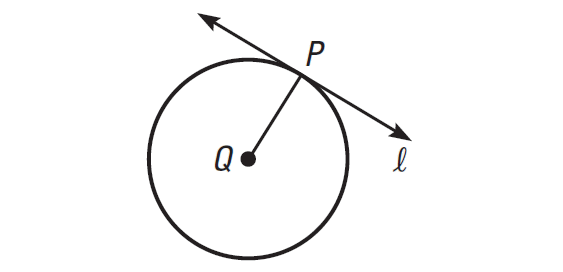
Theorem 2 :
If a plane, if a line is perpendicular to a radius of a circle at its endpoint on the circle, then the line is tangent to the circle.
In the diagram shown below, if l ⊥ QP at P, then l is tangent to circle Q.
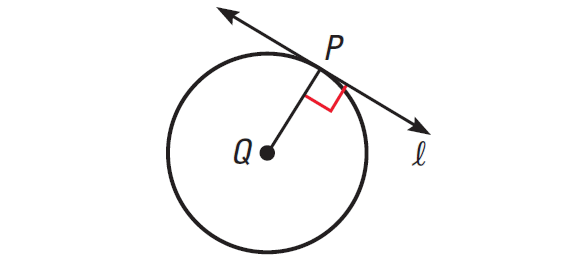
From a point in a circle's exterior, we can draw exactly two different tangents to the circle. The following theorem tells us the segments joining the external point to the two points of tangency are congruent.
Theorem 3 :
If two segments from the same exterior points are tangent to a circle, then they are congruent.
In the diagram shown below, if SR and ST are tangent to circle P, then SR ≅ ST.
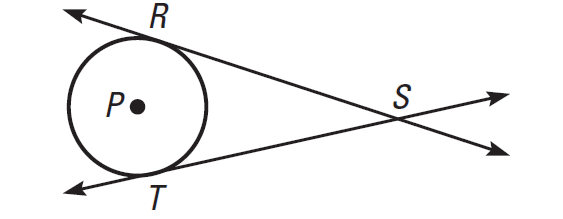
Identifying Tangent to a Circle
Example 1 :
Tell which line or segment is best described as a tangent in the diagram shown below.
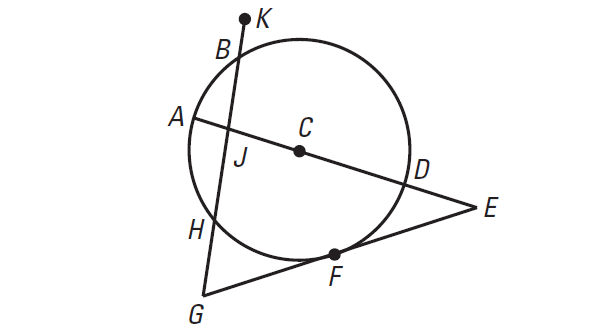
Solution :
EG is a tangent, because it intersects the circle in one point.
Identifying Common Tangents
Example 2 :
In the diagram shown below, tell whether the common tangents are internal or external.
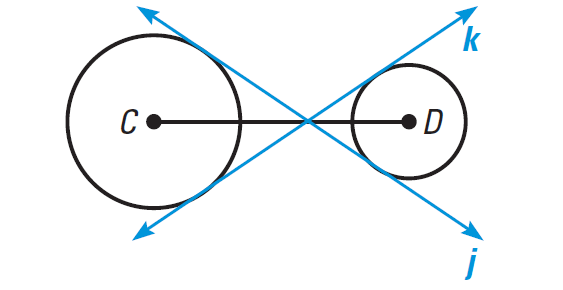
Solution :
The lines j and k intersect CD, they are common internal tangents.
Example 3 :
In the diagram shown below, tell whether the common tangents are internal or external.
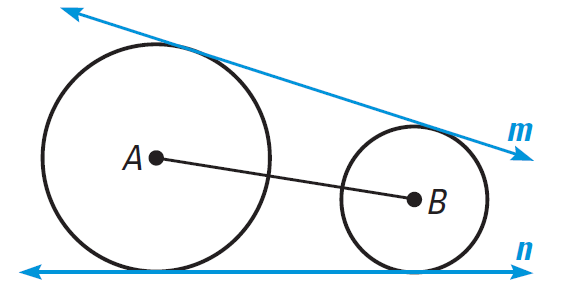
Solution :
The lines m and n do not intersect AB, so they are common external tangents.
Tangent in Coordinate Geometry
Example 4 :
In the diagram shown below, describe all common tangent and identify the point of tangency.
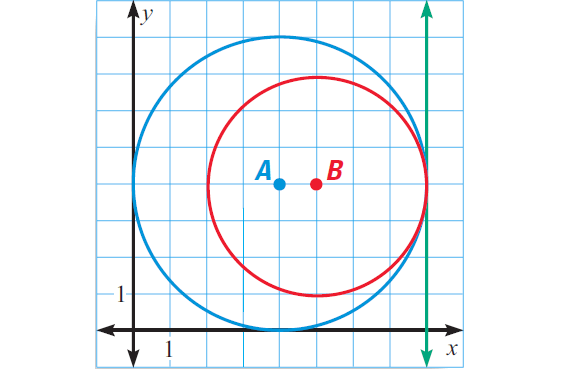
Solution :
The vertical line x = 8 is the only common tangent of the two circles.
The point of tangency is (8, 4).
Note :
The point at which a tangent line intersects the circle to which it is tangent is the point of tangency.
Verifying a Tangent to a Circle
Example 5 :
In the diagram shown below, say whether EF is tangent to the circle with center at D.

Solution :
We can use the Converse of the Pythagorean Theorem to say whether EF is tangent to circle with center at D.
Because 112 + 602 = 612, ΔDEF is a right triangle and DE is perpendicular to EF.
So by Theorem 2 given above, EF is tangent to the circle with center at D.
Finding the Radius of a Circle
Example 6 :
In the diagram shown below, I am standing at C, 8 feet from a grain silo. The distance from me to a point of tangency is 16 feet. What is the radius of the silo ?
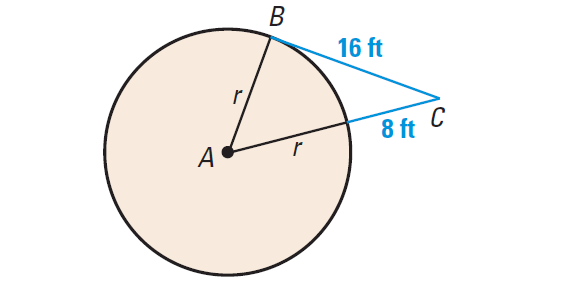
Solution :
By the Theorem 1 given above, tangent BC is perpendicular to radius AB at B. So ΔABC is a right triangle. So we can use the Pythagorean theorem.
Pythagorean Theorem :
(r + 8)2 = r2 + 162
Square of binomial :
r2 + 16r + 64 = r2 + 256
Subtract r2 from each side :
16r + 64 = 256
Subtract 64 from each side :
16r = 192
Divide each side by 16.
r = 12
Hence, the radius of the silo is 12 feet.
Using Properties of Tangents
Example 7 :
In the diagram shown below,
AB is tangent at B to the circle with center at C
AD is tangent at D to the circle with center at C
Find the value of x.
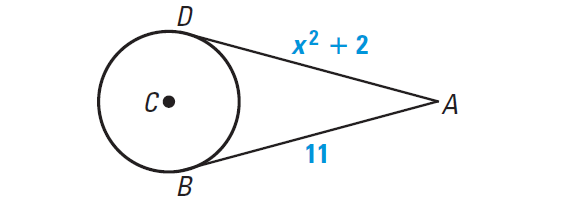
Solution :
By the Theorem 3 given above, two tangent segments from the same point are congruent.
AB = AD
Substitute :
x2 + 2 = 11
Subtract 2 from each side.
x2 = 9
Take square root on each side.
x = ± 3
Hence, the value of x is 3 or -3.
Kindly mail your feedback to v4formath@gmail.com
We always appreciate your feedback.
©All rights reserved. onlinemath4all.com
Recent Articles
-
Digital SAT Math Problems and Solutions (Part - 150)
Apr 25, 25 11:46 AM
Digital SAT Math Problems and Solutions (Part - 150) -
AP Calculus AB Problems with Solutions (Part - 19)
Apr 24, 25 11:10 PM
AP Calculus AB Problems with Solutions (Part - 19) -
AP Calculus AB Problems with Solutions (Part - 18)
Apr 24, 25 11:06 PM
AP Calculus AB Problems with Solutions (Part - 18)
